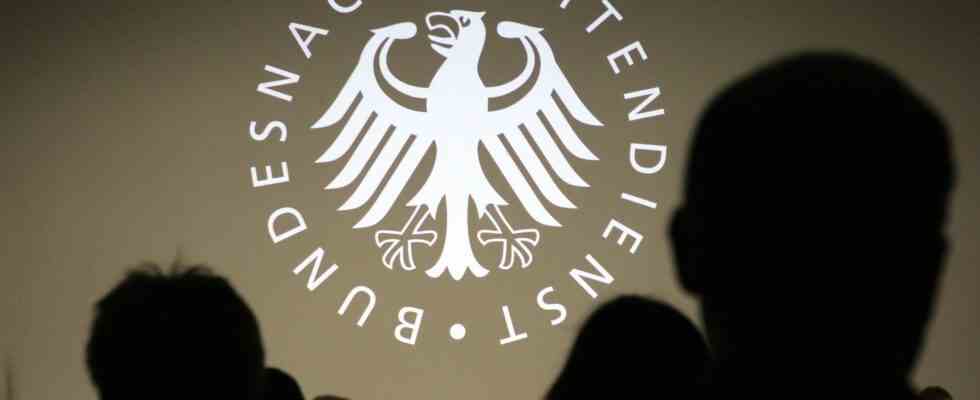Exclusive
Status: 12/28/2022 1:00 p.m
A BND employee is said to have betrayed secrets to Russia. research by WDR, NDR and “Süddeutsche Zeitung” show how the secret service got on its track – and why at times a colleague of his was also targeted.
For the Federal Intelligence Service (BND), it is both a success and a worst case scenario: a suspected traitor has been unmasked in the ranks of the German foreign intelligence service. Shortly before Christmas, BND employee Carsten L. was arrested and is now in custody. The accusation weighs heavily: treason. L. is said to have disclosed information to a Russian secret service – including BND documents that are considered state secrets.
The BND got on the trail of the suspected mole after research by WDR, NDR and “Süddeutsche Zeitung” initially a few months ago, through a note from a foreign partner service: BND secrets had been made accessible to Russia’s spies. There must be a leak in the service. The “Bild” newspaper also reported on it.
Complicated search
The BND then started internal investigations. The so-called internal security is responsible for this, a unit that works isolated from the rest of the service and is supposed to track down traitors in the BND. It has its own observation unit that secretly monitors suspicious employees, sometimes even tracking them abroad.
The BND investigators set out to find out where the leaked material came from and who had access to it. Not an easy task, after all, the BND now has around 7,000 employees at several locations.
However, due to the information from abroad, the security department finally came across Carsten L., a senior civil servant who works in the group management of technical reconnaissance (TA). That area of the BND that is responsible for the surveillance of worldwide telephone, satellite and Internet communications.
One of the most sensitive items
It is one of the most sensitive posts in the foreign intelligence service, and this is where the findings from tapped telephone calls, radio messages or intercepted e-mails come together. For example from war and crisis areas such as Ukraine or Syria, or to the Iranian nuclear program. And it is also regularly about the findings of partner services, above all the US surveillance service NSA or the British GCHQ. Around half of all the knowledge gained by the BND is said to come from telecommunications reconnaissance.
Carsten L. is considered an expert on this. He came to the BND from the Bundeswehr a few years ago and has the military rank of colonel. He works both in the old BND headquarters in Pullach near Munich and in Berlin, the new headquarters of the secret service. So far the man had never been conspicuous. But now he was suspected of being a mole. It had to do with one of his employees.
Colleague is now considered relieved
The BND man is said to have repeatedly requested secret documents from this woman, explosive information for which there was said to have been no really recognizable official reason. The BND investigators wondered whether the employee might have participated in the treason.
Finally, the suspicion against Carsten L. is said to have become so strong that the BND informed the Attorney General, who then initiated proceedings and entrusted the Federal Criminal Police Office (BKA) with the investigation.
Carsten L. was finally arrested in Berlin on December 21. The investigators not only searched his Berlin apartment and his office in the BND headquarters in Berlin-Mitte, but also his house near Munich. And the employee’s apartment. She is now considered exonerated, there is no evidence that she consciously participated in a betrayal, they say.
Information flow is considered secured
According to investigators, the fact that BND information was leaked to a Russian secret service is considered certain. This should also include material that provides information about how the BND is proceeding in the investigation of Russia. However, secrets of foreign partner services should not be affected.
What could have been Carsten L.’s motivation is still unclear. Accordingly, no money should have flowed. The investigators are therefore also investigating the question of whether the BND man was possibly blackmailed.
The presumption of innocence continues to apply to Carsten L. His lawyer said on request that he would not comment on the allegations. The Federal Public Prosecutor and the Federal Intelligence Service (BND) did not want to comment further on the suspected case when asked.
WDR, NDR and SZ: Further details on the arrested BND employee
Björn Blaschke, WDR, 12/28/2022 1:23 p.m

